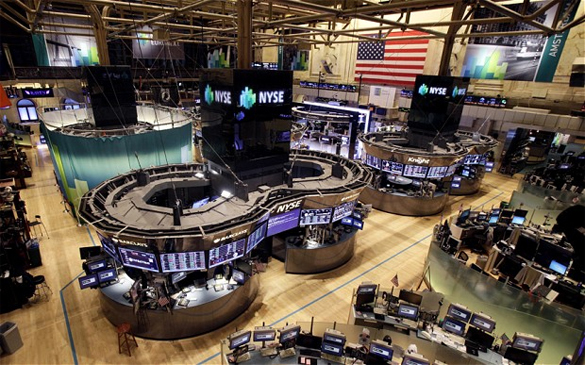S&P junks Russia at USA's bidding
Rating agency Standard & Poor's downgraded Russia's credit rating to the speculative BB+ grade. Analysts say that the decision of the rating agency was politically motivated.

The speculative level means that securities that a BB+ state issues can only be good for short-term transactions to earn on their fall. The BB+ level of the credit rating is known as the "junk" rating.
In fact, ratings of international rating agencies fix the ability of this or that country to pay their debts. A credit rating is also important in assessing whether it is possible and expedient to lend money to a country. Such international rating agencies as Moody's, S&P and Fitch work in this area. The agencies are known for giving their assessments on political grounds.
The decision of Standard & Poor's to downgrade Russia's credit rating struck another blow on the weak Russian ruble. Following the decision, the dollar rate climbed to the level of 69 rubles per one dollar. The euro was traded on more than 78 rubles per euro. However, the ruble subsequently improved its position by bouncing back to 67 rubles per one US dollar.
American economist James Rickards, the head of global strategy firm West Shore Funds, considers the downgrade of the Russian rating by Standard & Poor's "meaningless" and "inaccurate."
"Russia has ample reserves to pay off its sovereign debt. Russia's external dollar-denominated debt is quite low, relative to GDP and relative to its reserve position. It's hard to see the basis for the downgrade, which is inaccurate and meaningless," Rickards, the author of "Currency Wars," told Sputnik.
"The idea that Russia is going broke is nonsense, because they have a strong reserve position and access to hard currency reserves in China. China has $4 trillion in dollar-denominated assets, they could easily lend Russia everything it needs," Rickards added.
According to Politonline.ru, to create a negative psychological environment among the Russian population and sow panic in economic circles inside and outside the country is one of the goals of customer of such rating predictions.
Take, for example, the authoritative and "completely objective in its assessments," Standard & Poor's. First and foremost, S&P is a subsidiary of the US-based media holding McGraw-Hill that provides financial and analytical services.
In a nutshell, S&P is very interested in the development of the sanctions pressure on Russia in line with the policies of the US authorities. The same can be said about other rating agencies, so expecting completely objective and truthful assessment from them is hardly possible.
According to the forecast from S&P, the Russian economy will grow annually by 0.5% in 2015-2018, which is significantly lower than the rate of previous years. Inflation, according to S&P, will be higher than ten percent. "We expect that the quality of assets in the financial system, taking into account the weakening of the ruble, the limited access of key areas of the economy to international capital markets on account of sanctions, as well as the economic downturn will continue to deteriorate," Standard & Poor's analysts said.
The next revision of Russia's credit rating is scheduled for April 17, 2015, with a negative outlook. In the first minutes after the announcement of the news from S&P, the dollar rose by 5.06 rubles as compared to the closing of the previous trading session and reached 69.29 rubles. The euro rose by 5.8 rubles - up to 77.89 rubles. In the morning of January 27, the ruble regained its positions at auction.
Russia's credit rating downgraded to junk for the first time since 2005
As a result of the decision from Standard & Poor's, Russia's rating has been downgraded to the "junk" level for the first time since 2005. The loss of the investment rating may finally close foreign debt markets for Russian companies for a long time, the Kommersant newspaper said.
Russian Finance Minister Anton Siluanov believes that Standard & Poor's decision does not take into account the strong sides of the Russian economy. According to him, these are large reserves and low public debt, reports TASS.
Some experts say that the downgrade of the credit rating below the investment level marks only the beginning of serious problems for the Russian economy.
First Deputy Prime Minister Igor Shuvalov, while at the Davos forum, said: "The situation with ratings is not quite adequate, as ratings are often based on political grounds."
To stabilize the rating, Russia will need to restore financial stability (primarily reopen access to foreign loans for Russian borrowers) and improve basic macroeconomic indicators, S&P analysts said.
Meanwhile, President Vladimir Putin said at the recent meeting with the government that preserving "social stability" while maintaining "acceptable economic indicators" would be the prime goal for the Russian government.
Pravda.Ru
Subscribe to Pravda.Ru Telegram channel, Facebook, RSS!





